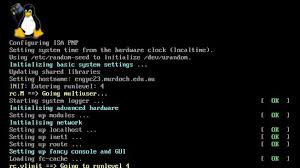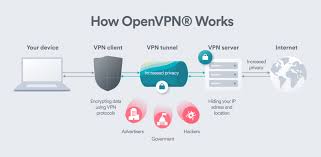Unleashing the Potential of Open Source Analytics Tools
Exploring the Power of Open Source Analytics Tools
In today’s data-driven world, businesses and organisations rely on analytics tools to make informed decisions, gain insights, and drive growth. While there are proprietary analytics solutions available, open source analytics tools have gained popularity for their flexibility, cost-effectiveness, and community-driven development.
Benefits of Open Source Analytics Tools:
- Cost-Effective: Open source analytics tools are typically free to use, making them accessible to businesses of all sizes.
- Flexibility: Users can customise and extend the functionality of open source tools to suit their specific needs and requirements.
- Community Support: The open source community provides a wealth of resources, documentation, and support for users of these tools.
- Transparency: With open source tools, users have visibility into the codebase, allowing for greater transparency and security.
- Rapid Innovation: Open source projects often benefit from collaborative development efforts, leading to rapid innovation and updates.
Popular Open Source Analytics Tools:
There are several powerful open source analytics tools available that cater to a wide range of data analysis needs. Some popular options include:
- R: R is a widely-used programming language and software environment for statistical computing and graphics. It offers a vast array of packages for data manipulation, visualisation, and analysis.
- Apache Hadoop: Hadoop is an open-source framework that allows for the distributed processing of large data sets across clusters of computers. It is commonly used for big data analytics.
- Apache Spark: Spark is a fast and general-purpose cluster computing system that provides in-memory data processing capabilities. It is known for its speed and ease of use in processing large datasets.
- Elasticsearch: Elasticsearch is a distributed search engine that can be used for full-text search, log analysis, real-time analytics, and more. It is commonly used for indexing and searching large volumes of data.
The Future of Open Source Analytics Tools
The landscape of analytics tools continues to evolve rapidly with advancements in technology. Open source solutions are at the forefront of this evolution, empowering businesses to harness the power of data in innovative ways. As organisations strive to gain deeper insights from their data while keeping costs in check, open source analytics tools are poised to play an increasingly important role in shaping the future of analytics.
Frequently Asked Questions About Open Source Analytics Tools
- What are open source analytics tools?
- How do open source analytics tools differ from proprietary solutions?
- What are the benefits of using open source analytics tools?
- Which are the popular open source analytics tools available?
- How can I get started with using open source analytics tools?
- Are there any costs associated with using open source analytics tools?
- How secure are open source analytics tools compared to proprietary options?
What are open source analytics tools?
Open source analytics tools refer to software applications and platforms that are developed and distributed under an open-source license, allowing users to access, modify, and distribute the code freely. These tools are designed to assist businesses and individuals in analysing data, generating insights, and making informed decisions. By leveraging open source analytics tools, users can benefit from cost-effective solutions that offer flexibility, transparency, and community support. From statistical computing to big data processing and real-time analytics, open source analytics tools empower users to harness the power of data in innovative ways while promoting collaboration and knowledge sharing within the community.
How do open source analytics tools differ from proprietary solutions?
Open source analytics tools differ from proprietary solutions in several key ways. Firstly, open source tools are typically freely available to users, offering a cost-effective alternative to proprietary software. This accessibility allows businesses of all sizes to leverage powerful analytics capabilities without the burden of high licensing fees. Additionally, open source tools provide greater flexibility and customisation options, enabling users to tailor the software to their specific needs. The collaborative nature of open source development also fosters a community-driven approach to innovation, resulting in rapid updates and enhancements based on user feedback. In contrast, proprietary solutions may offer more polished interfaces and dedicated support but often come with limitations on customisation and scalability. Ultimately, the choice between open source and proprietary analytics tools depends on factors such as budget constraints, technical requirements, and the level of control desired by the user or organisation.
What are the benefits of using open source analytics tools?
When considering the benefits of using open source analytics tools, one is immediately drawn to their cost-effectiveness, flexibility, and community support. Open source analytics tools are often free to use, making them accessible to businesses of all sizes. Their flexibility allows users to customise and extend the functionality of the tools to suit their specific needs. Moreover, the vibrant open source community provides a wealth of resources, documentation, and support for users, ensuring that they have the necessary guidance and assistance in utilising these powerful analytics tools effectively.
Which are the popular open source analytics tools available?
One of the most frequently asked questions in the realm of open source analytics tools is, “Which are the popular open source analytics tools available?” This question arises from a growing interest in leveraging open source solutions for data analysis and insights. Users often seek recommendations for established and reliable tools that can meet their diverse analytical needs. From widely-used programming languages like R to powerful frameworks such as Apache Hadoop and Apache Spark, the open source ecosystem offers a rich selection of tools that cater to various data processing requirements. Understanding the popularity and capabilities of these tools can help users make informed decisions when choosing the right analytics solution for their projects.
How can I get started with using open source analytics tools?
To get started with using open source analytics tools, a good first step is to identify your specific data analysis needs and goals. Research different open source analytics tools available and choose one that aligns with your requirements. Many open source tools offer tutorials, documentation, and online resources to help beginners get started. Consider joining forums or communities dedicated to the tool you have chosen, as they can provide valuable support and guidance. Start by exploring basic functionalities and gradually delve into more advanced features as you become familiar with the tool. Experiment with sample datasets to practice using the tool and gain hands-on experience. Remember that learning to use open source analytics tools is a journey, so be patient with yourself and enjoy the process of discovering the power of data analytics through open source technology.
Are there any costs associated with using open source analytics tools?
When it comes to open source analytics tools, one of the most frequently asked questions is whether there are any costs associated with their usage. The beauty of open source analytics tools lies in their cost-effectiveness, as they are typically free to use. Unlike proprietary solutions that often come with hefty licensing fees, open source tools offer businesses and organisations a budget-friendly alternative for data analysis needs. While there may be costs associated with additional services such as support or customisation, the core functionality of open source analytics tools remains accessible to users without any upfront expenses. This affordability, coupled with the flexibility and community support that open source tools provide, makes them an attractive option for those looking to leverage analytics capabilities without breaking the bank.
How secure are open source analytics tools compared to proprietary options?
When considering the security of open source analytics tools compared to proprietary options, it is essential to recognise that both types of software have their own set of strengths and vulnerabilities. Open source analytics tools often benefit from a transparent development process, allowing for community scrutiny and rapid identification and patching of security issues. Additionally, the collaborative nature of open source projects can lead to robust security practices being implemented. On the other hand, proprietary analytics tools may offer dedicated support and regular updates focused on security enhancements. Ultimately, the security of any tool, whether open source or proprietary, depends on factors such as timely updates, adherence to best practices, and the diligence of users in implementing secure configurations and practices.












